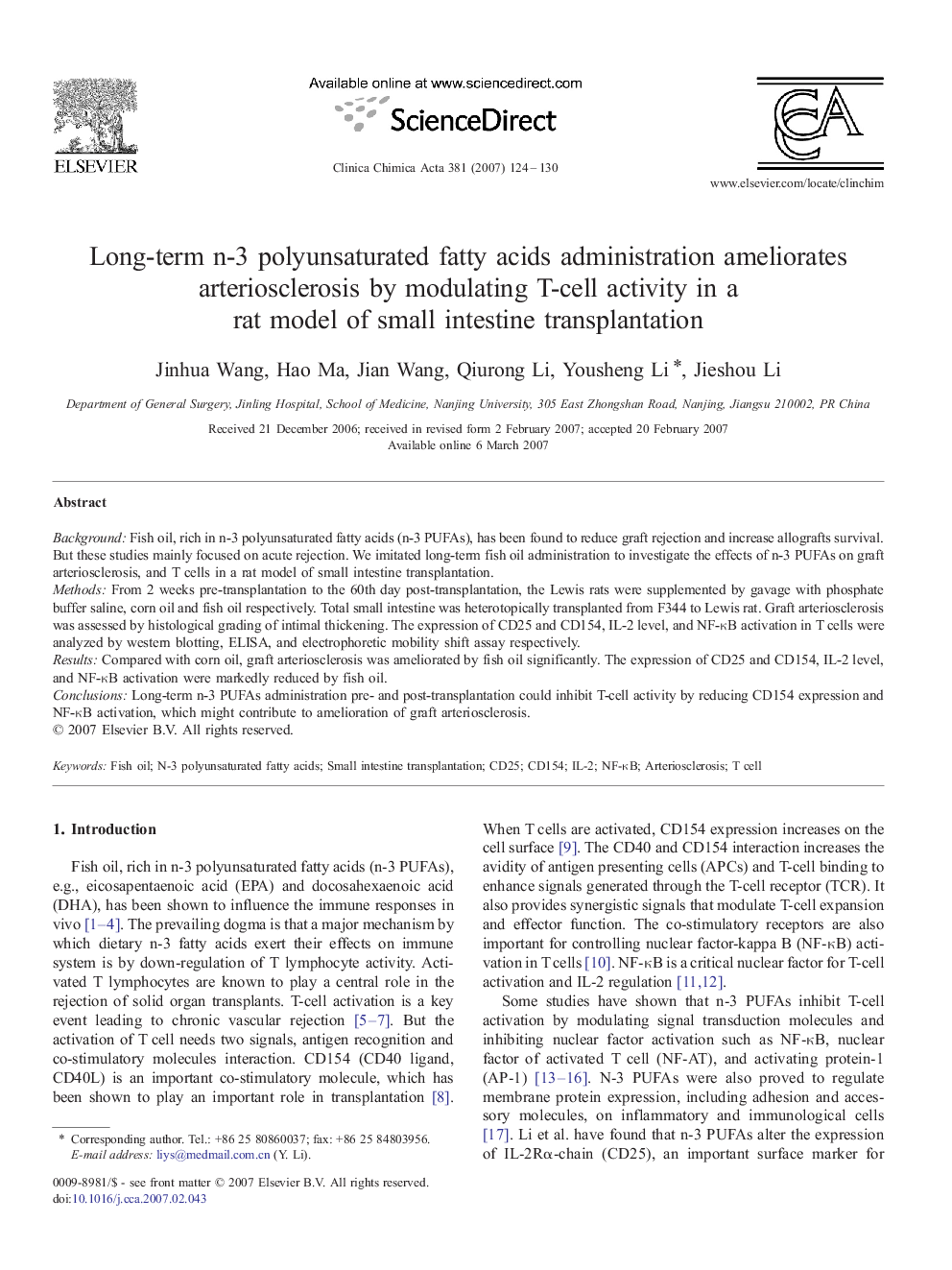| Article ID | Journal | Published Year | Pages | File Type |
|---|---|---|---|---|
| 1967611 | Clinica Chimica Acta | 2007 | 7 Pages |
BackgroundFish oil, rich in n-3 polyunsaturated fatty acids (n-3 PUFAs), has been found to reduce graft rejection and increase allografts survival. But these studies mainly focused on acute rejection. We imitated long-term fish oil administration to investigate the effects of n-3 PUFAs on graft arteriosclerosis, and T cells in a rat model of small intestine transplantation.MethodsFrom 2 weeks pre-transplantation to the 60th day post-transplantation, the Lewis rats were supplemented by gavage with phosphate buffer saline, corn oil and fish oil respectively. Total small intestine was heterotopically transplanted from F344 to Lewis rat. Graft arteriosclerosis was assessed by histological grading of intimal thickening. The expression of CD25 and CD154, IL-2 level, and NF-κB activation in T cells were analyzed by western blotting, ELISA, and electrophoretic mobility shift assay respectively.ResultsCompared with corn oil, graft arteriosclerosis was ameliorated by fish oil significantly. The expression of CD25 and CD154, IL-2 level, and NF-κB activation were markedly reduced by fish oil.ConclusionsLong-term n-3 PUFAs administration pre- and post-transplantation could inhibit T-cell activity by reducing CD154 expression and NF-κB activation, which might contribute to amelioration of graft arteriosclerosis.
